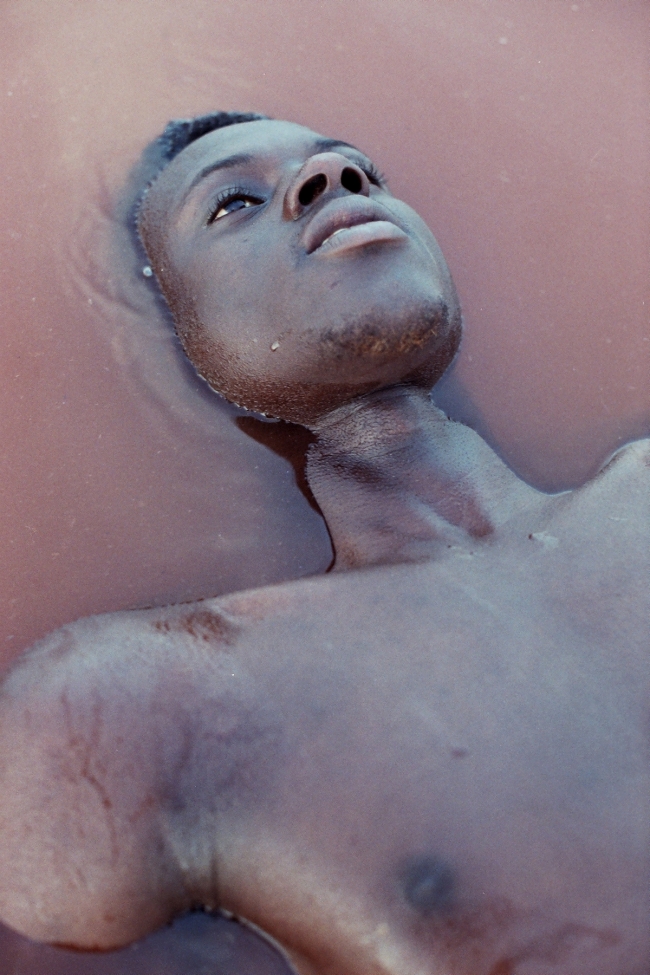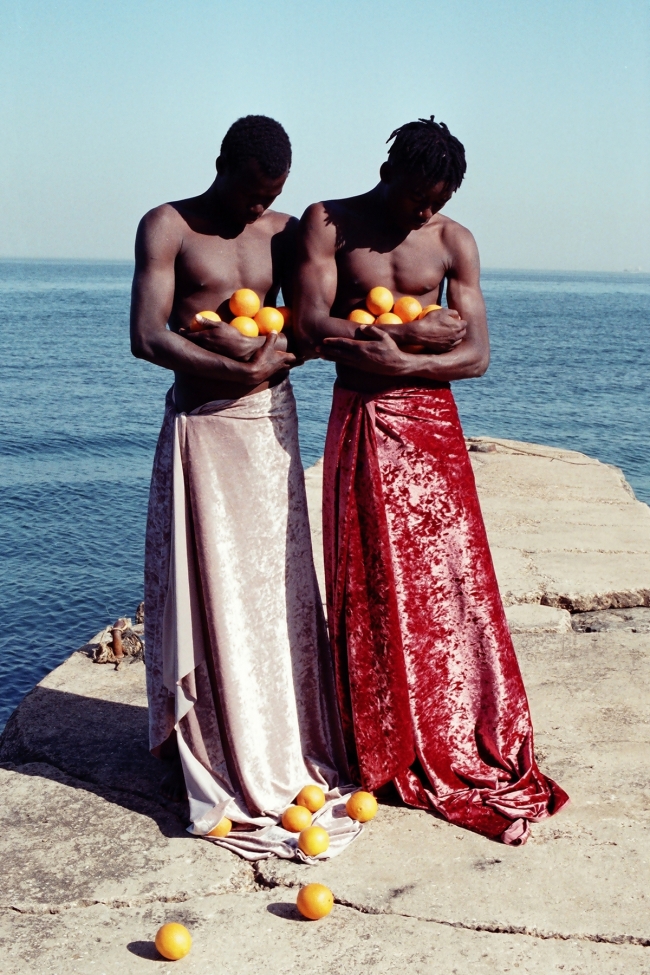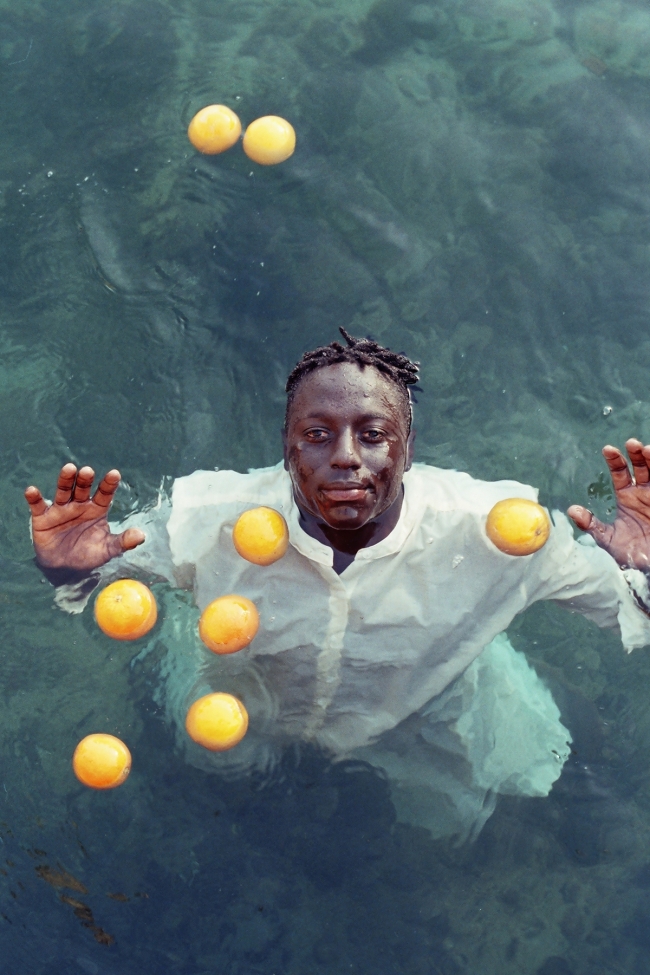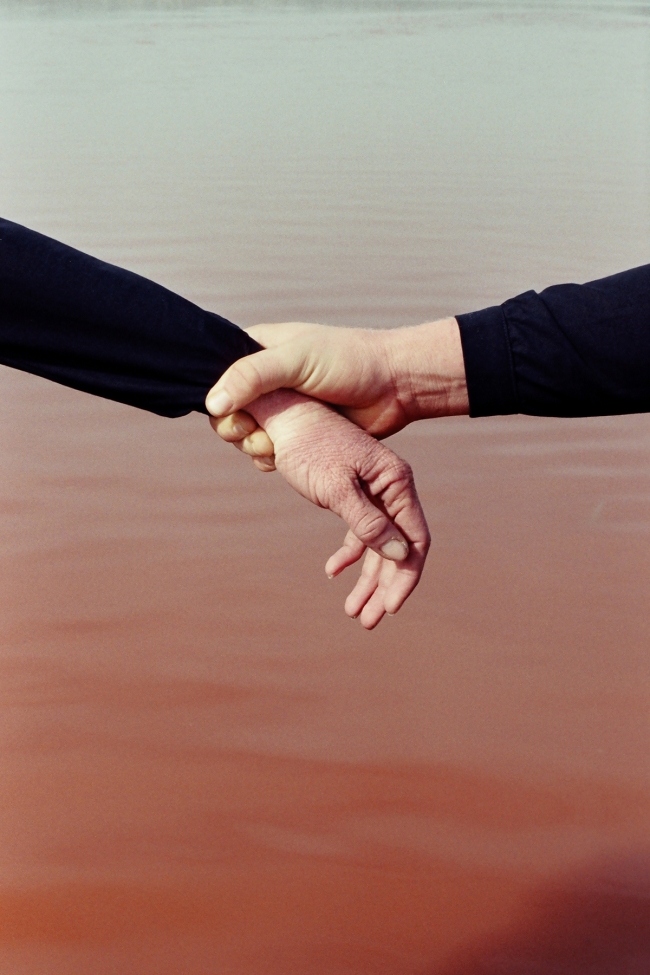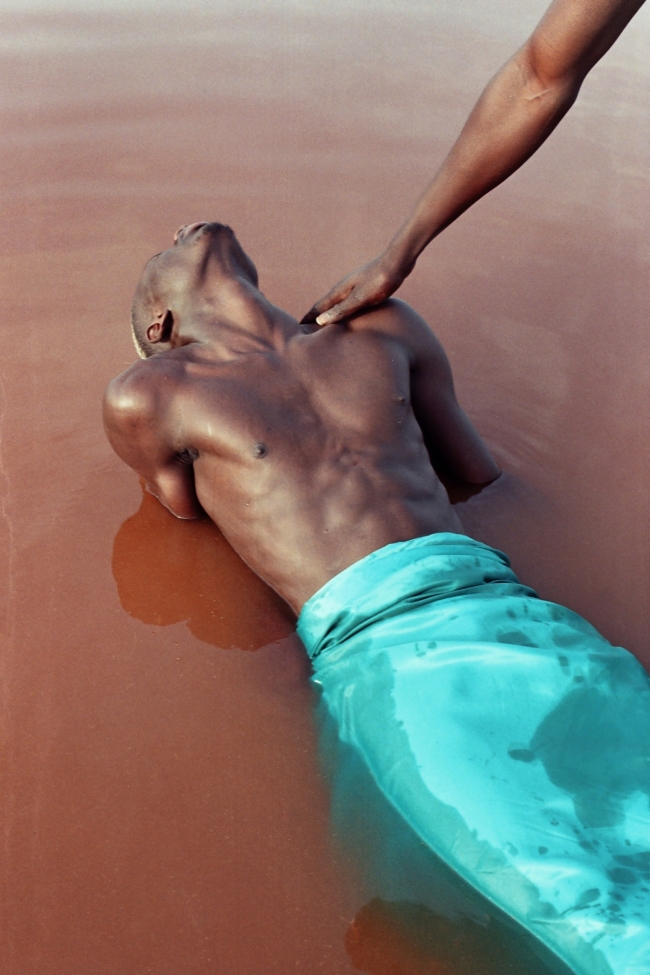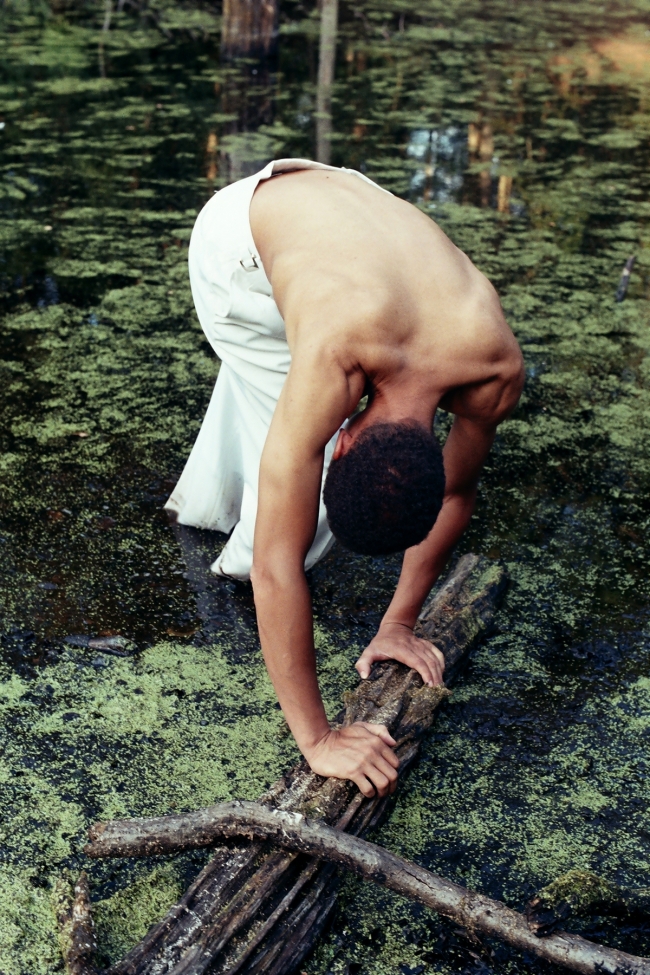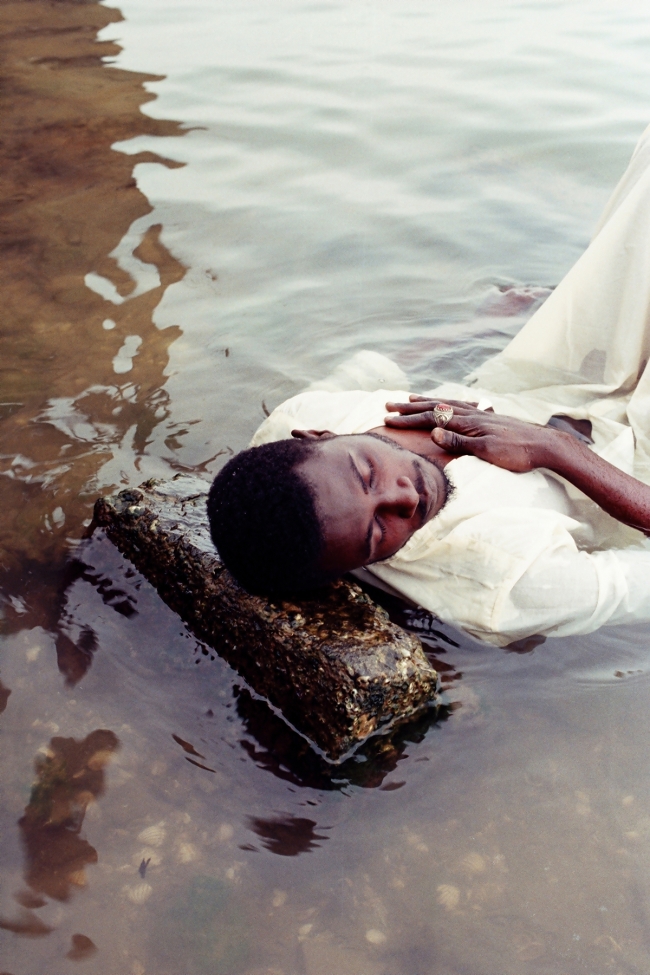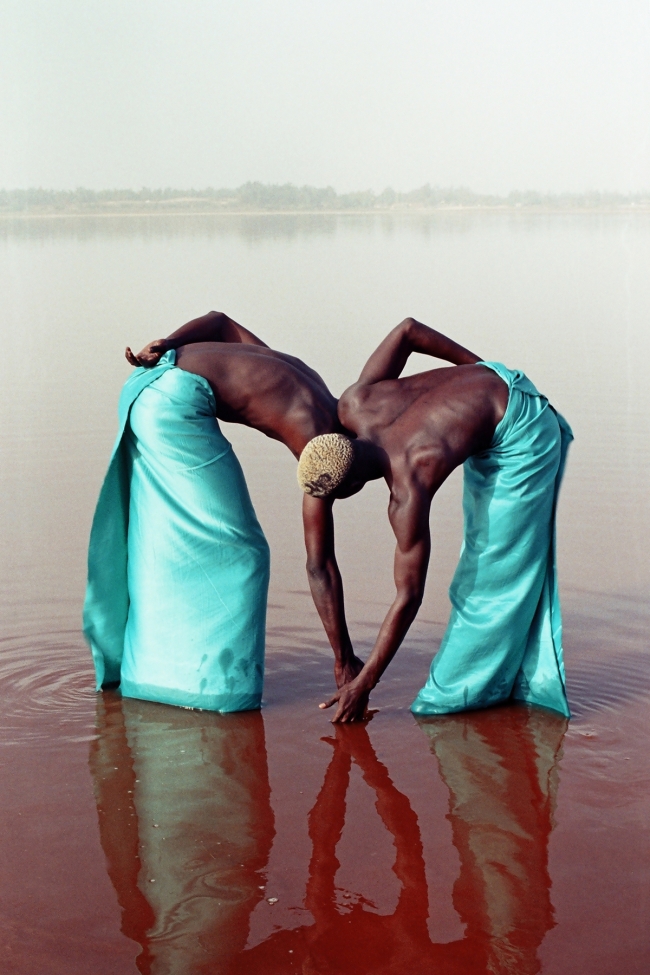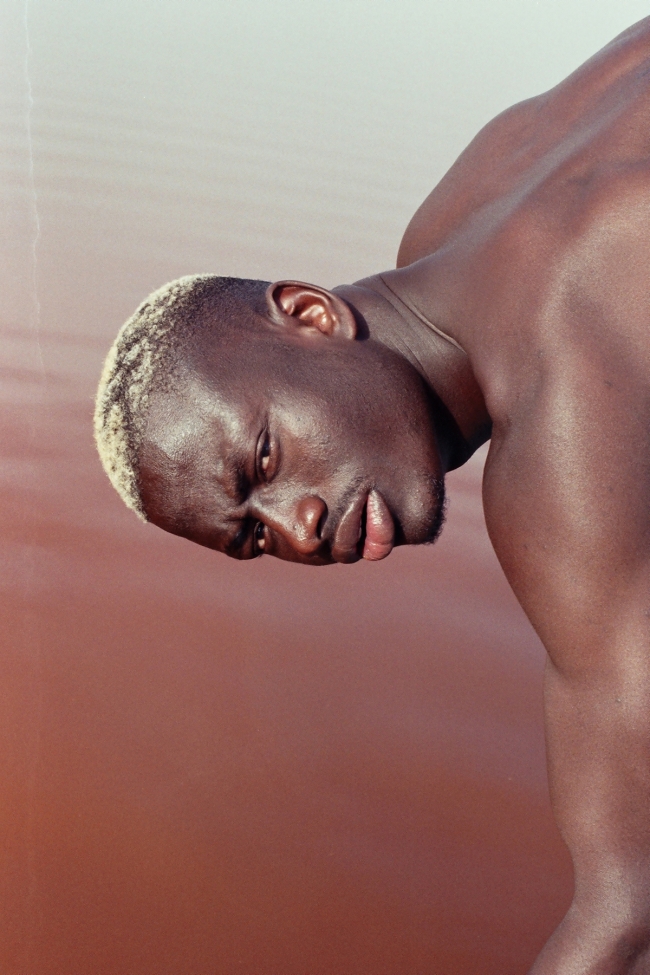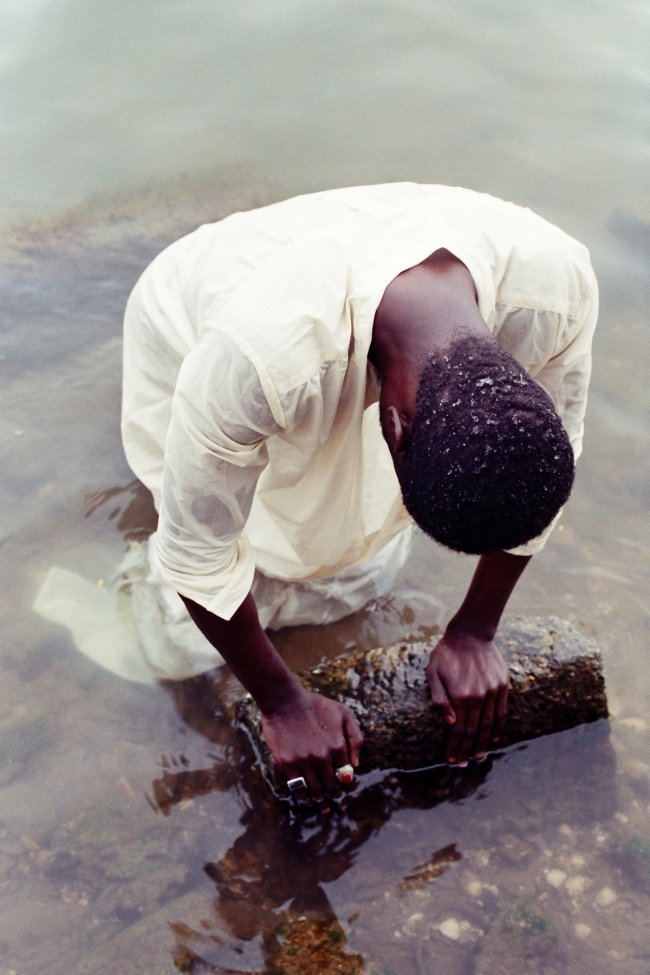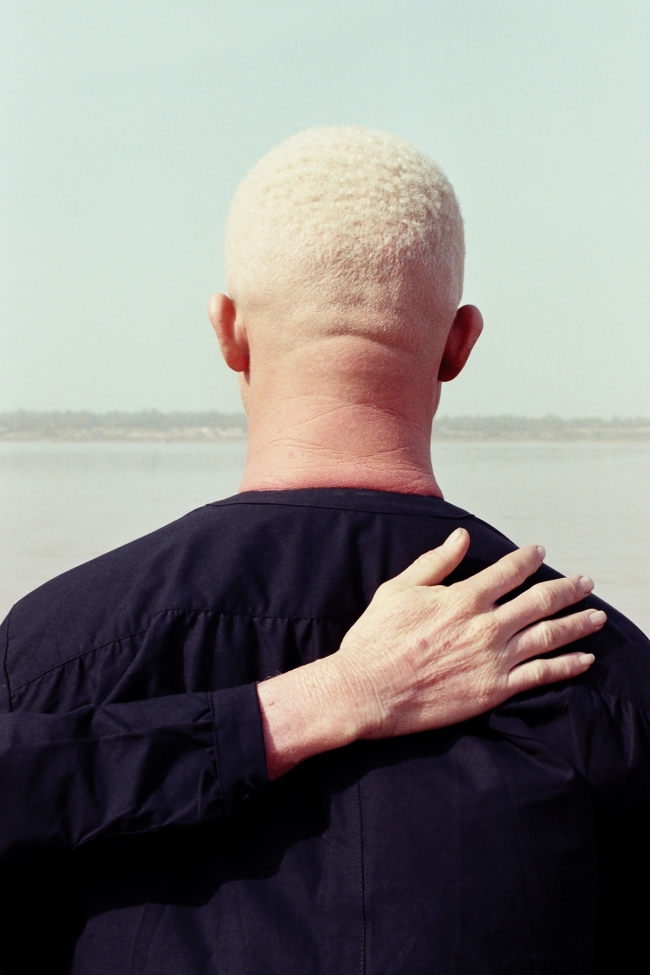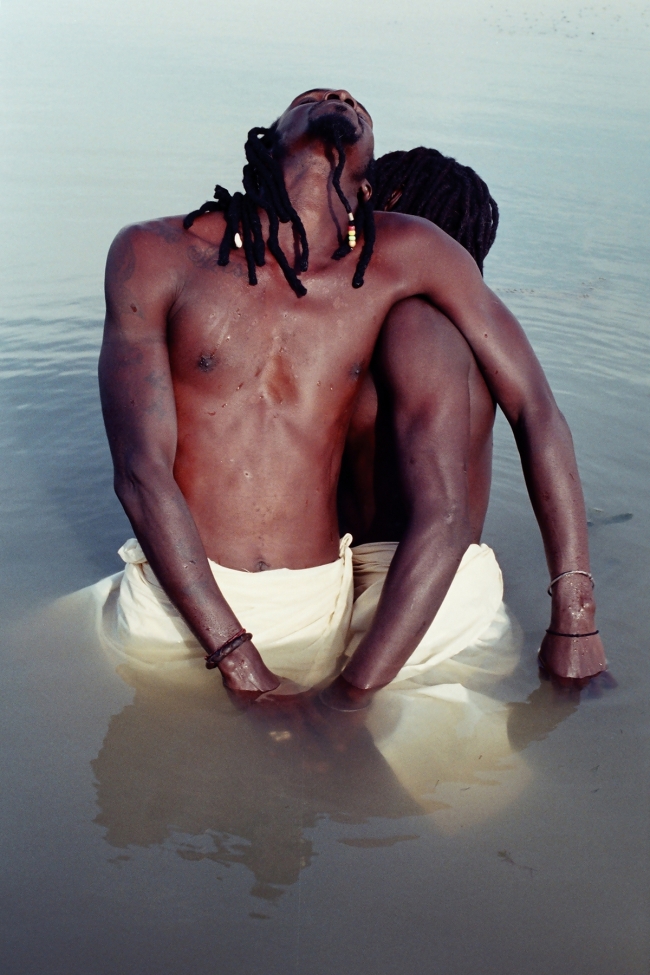Interview Sophia Razvi
"I was born on an island. On land surrounded by water. Water I never talked to. But one day, many rainfalls and lakes and rivers and oceans later, water finally spoke to me."
When Caribbean-born, Barcelona-based photographer Denisse Ariana Pérez announced word of her debut photo book, there was little possibility that we couldn't not shine a light on it.
Agua is the stunning visual chronicle of a personal pilgrimage with water, one that began only later in life, yet took Denisse on a journey from the pink lakes of Senegal to the cool urban pools of Scandinavia.
When ethereal images like these render language redundant, all that's left to uncover is the story behind the process, and that we do. Read on to immerse yourself in Agua.
Why this moment to create your first photographic book; why record your journey with water now?
I've practically been working on it for almost two years. At first, the journey started in different parts of Africa. I planned to finish it in South East Asia - and then the pandemic happened and I was in Denmark at the time. There was something in me that I was like, 'I need to reimagine this journey that I had, this aquatic pilgrimage.' So I decided to continue it in Denmark and in the Nordics. Luckily enough, Denmark is also filled with water, but it's just very different ecosystems. I finished the entire book there last summer. You know when a force is bigger than yourself, and you just follow it through? That's what it felt like.
Did you always have the photo book in this form as the end goal?
It's interesting because I start most of my photo series in a very instinctive and intuitive way, and sometimes it's only until later on that I reflect upon them and understand: what am I doing? Why am I doing this? Why am I chasing these water landscapes and these people? Then I just knew that I wanted to keep exploring the theme, and I started to consciously travel to places with that in mind. Then the publisher reached out to me about a year ago and said they wanted to do a book with me. I was like: 'Oh, I already have a theme. I already have a name.'
At what point did you realise your heritage, growing up on an island, was so profoundly influencing your artistic expression?
I grew up on an island in the Dominican Republic, but I never felt very attached to it at all. I've never had any emotional sense of belonging there. I left very young when I was 17, and I haven't lived there again. So it is not a case of, "Oh, I grew up by a coast and I've always had a romantic relationship". Not at all, I grew up in a city and you had to drive for like three and a half hours to get to the nearest coast.
I think that it only came into my life way later, as an adult, and not because of islands, but in the presence of nature that I understood why I connected with water. I guess in some way, without knowing it, I have a very aquatic soul. You need to have some maturity to appreciate symbolism. But I found it ironic that I was born on an island.
What drew you to these places and these people in particular?
The majority of the book takes place around East Africa, in the Lake Victoria region - which is one of my favourite water landscapes. It's a very unique landscape because it's not a river, it's not an ocean, it's just this massive lake that encompasses different countries. It has a lot of communities that live around the lake, so I also wanted to look for people who had a relationship with water, who grew up by it, who don't necessarily fear it. That's another thing: a lot of people fear water. A lot of times I had to help people conquer their fears of water for this book.
Then, I wanted a different landscape. I wanted to go all the way West, I wanted to have more of the ocean and the Atlantic, and just a different rhythm: in the people, in the water, in the skin - darker skin. And then I went to Denmark. I'm very happy about that change. I wanted to have different forms of water, different tempos, and tonalities. So for example, you'll see some pink water and that's in Senegal.
Do you have a favourite image/moment from the series?
More than an image, I would say, there were beautiful moments. I remember through Uganda I was travelling with a friend, and his father was a school geography teacher. He became my unexpected sidekick; it was just me and him. He knew all these spots, because of his profession and he was my guide to finding these little corners. One day, we spent eight hours on a tiny motorcycle, me and him and the driver, driving through cornfields. And he's climbing up rocks and hills with me - this man is 60 years old, but he's just so radiant. At one point, we had to cross a river, so we had to ask these strangers to help us lift the motorcycle onto this tiny wooden boat to cross the river. That's why I sometimes say that the experience is like a pilgrimage: it truly felt like that. I remember my physical state in every photo that I took.
When you're dealing with nature, that also means dealing with the unexpected. I remember there were these photos taken by a waterfall; I was balancing on two rocks, and a man was holding my hand whilst I just shot with the other one.
There was a lot of emotional coaching, too, because, as I mentioned, some people think they are comfortable in the water, but my goal was to make them connect a bit more and allow themselves to relax. Some people are in a state of alert when they are in the water. There was a girl I photographed that I had to spend 30 minutes just trying to get her in the water. She was so comfortable up until this point but we were in an urban lagoon in Copenhagen and suddenly she became so fearful that she couldn't see the bottom of this knee-deep water because it had all these leaves. I think there are many stories in the book about how you can create a space for someone to let go, and connect, and float, literally.
If water is the essence of spiritual freedom, what is the antithesis?
Ironically enough, I think islands can be the opposite of water. Islands can be stagnated pieces of land. They can become very insular and narrow. That's one of the many reasons why I left. I have this weird relationship with islands, actually, because sometimes they can become so inward-looking. They're surrounded by water, but they behave differently. You can look at the water, but you go inwards -and 'inwards' not in an introspective, deep way, but more in this very rock-like, solid, stagnated way.
I think the daring, freeing element is to step into the water, which is vast, and it's very unknown. But I think that's where freedom is. It's not in the safety of this stagnation. I always say I'm allergic to islands - and by that, I don't mean physical islands, I mean mental islands. I'm very careful with them. When I feel that a place becomes too insular, that's my green light to go.
As a self-funded project, 'Agua' is now available for pre-sale and can be purchased here.
